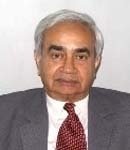BJP’s Nuclear Agenda
20 Feb, 1998 · 60
P. R. Chari analysing the BJP Election Manifesto, points out that the fudging of the nuclear test issue by Advani suggests that the BJP may not change India’s nuclear policy
In its election manifesto the BJP has declared that it would: -
India
’s nuclear option. He was evasive. Admitting to a "lack of expertise", Advani said experts had informed him that "nuclear tests may not be necessary for
India
to induct nuclear weapons".
India
. Experience informs that these declarations of intent are designed to garner votes. Politicians in power have more important things to do than pursue election promises.
India
’s nuclear weaponization.
India
weaponizing its nuclear programme?
India
’s nuclear policy. Opinion is sharply divided among the experts whether more nuclear tests are necessary or not for
India
to weaponize its "open" nuclear option. Some believe that
India
possesses the (demonstrated) capability to explode nuclear devices. Hence it can deploy untested, first-generation, fission devices, at will. They could be air-deliverable. But, mounting them on missiles would require miniaturizing the warhead. This may not be possible without adequate testing. That leads on to the knotty question: how many tests?
India
could only establish a deterrent of dubious worth against
Pakistan
. This is unnecessary since
India
has far superior conventional forces. But, to emplace credible deterrent capabilities against
China
, IRBMs equipped with nuclear warheads are unavoidably necessary.
China
the question that arises: Could
India
proceed with improving its bilateral relations with
China
on the one hand, and development and deployment of nuclear-warhead-armed-IRBMs directed against
China
, on the other hand. Apart from needlessly offending
China
,
India
should be prepared to face the ire of the developed world. This could affect the transfer of high technology in non-sensitive areas, and the inflow of financial assistance through bilateral channels and multinational financial institutions. No doubt, these dilemmas would accost the BJP’s nuclear agenda if it comes to power.
India
might "consider joining the NPT after becoming nuclear". [The Economic Times, April 17, 1993 ] Perhaps this is what he meant when he declared that nuclear tests were not required for
India
to induct nuclear weapons. In other words,
India
could declare that it had become a nuclear weapons power, without going to the trouble of conducting nuclear tests. Will this have any strategic value? In any case,
India
will not be accepted as a nuclear weapons power within its definition in the NPT. That treaty recognizes a
nuclear weapon
State
to be one that "has manufactured and exploded a nuclear weapon or other nuclear explosive device prior to January 1, 1967 ". Clearly,
India
would not qualify.
· Re-evaluate the country’s nuclear policy and exercise the option to induct nuclear weapons;
· Expedite the development of the Agni series of ballistic missiles with a view to increasing their range and accuracy.
It has also declared that: -
· The BJP rejects the notion of nuclear apartheid and will actively oppose attempts to impose a hegemonistic nuclear regime. We will not be dictated to by anybody in matters of security and in the exercise of the nuclear option.
In a press interview the BJP President, L.K.Advani, was asked whether the BJP, if it came to power, would conduct nuclear tests to exercise
Surprisingly, the BJP’s nuclear agenda has not attracted much attention, despite some thoughtful comments [Raja Mohan—Hindu—6 February & J.N.Dixit—The Indian Express—12 February] having been made. Why?
* First, nobody takes election manifestos seriously in
* Second, BJP leaders have reiterated their nuclear intentions for years. This pursues the line defined by its earlier avatar—the Jan Sangh—that had also advocated its favouring
* Third, the BJP in power has acted very differently from their rhetoric when out of power. Apropos, the BJP and the Jana Sangh were in power in earlier coalition governments. Why did they not press for
The fudging of the nuclear test issue by Advani suggests that the BJP may not change
Moreover, without nuclear missiles of at least IRBM range and nuclear testing,
The BJP manifesto speaks of its intention to proceed with developing the Agni missile. This shall require further testing. Since the strategic direction of the Agni missile would unequivocally be
A last point might be made. In 1993 Advani stated that
Much greater clarity, therefore, would be required of the BJP to define its nuclear agenda intelligibly, if it comes to power. Will it come to power on its own? Or in coalition with ‘like-minded’ parties that might have different nuclear agendas? And, how will the BJP balance its perceived needs of national security with the needs of international cooperation in an increasingly globalising world economy? How important are nuclear weapons to addressing the real problems of Indian security that increasingly lie in the internal and non-military dimensions? All these questions are presently up in the air.


